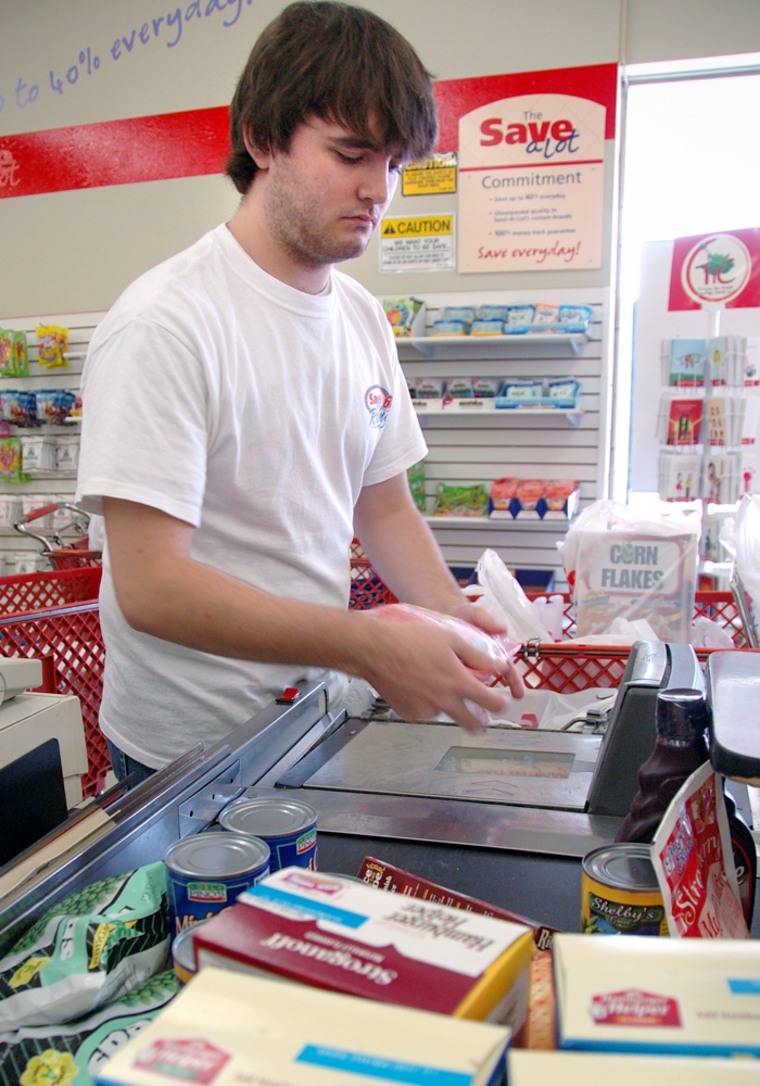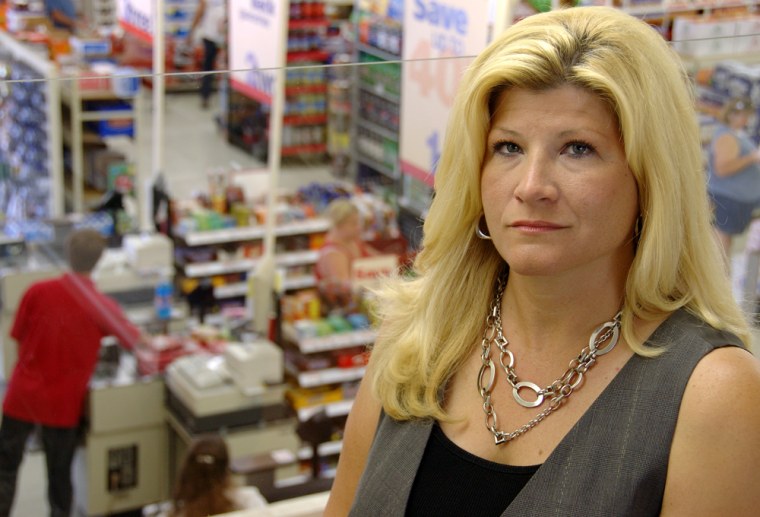The nation’s lowest-paid workers are getting a raise.
The federal minimum wage increase that went into effect Friday raises the lowest allowable wage for hourly workers from $6.55 to $7.25 an hour. It's the final stage of a three-year plan to increase the minimum wage.
Economists say the nearly 11 percent raise will provide a substantial boost in spending power for some workers but also could hurt some small businesses and job seekers because it will make the cost of hiring and retaining workers more expensive. Overall, however, many expect the economic effect to be minimal, in part because so few employers actually pay workers that low rate.
“At the aggregate level of the economy, it’s not something that would have a huge impact,” said Nigel Gault, chief U.S. economist with IHS Global Insight.
The effect is lessened in part because 21 states already require employers to pay wages at or above the new federal rate, including large states such as California. In addition, employers in the other states have known for several years that this latest boost was coming, and therefore have had time to plan for it.
“A lot of states moved a long time before the federal government moved on minimum wages,” Gault said. “The federal government is now catching up.”
Also, most workers make substantially more than the new minimum wage. The average hourly wage for U.S. workers is $18.52 an hour, according to seasonally adjusted data from the Bureau of Labor Statistics.
Still, there are pockets of the economy where the wage hike could have a significant impact. David Wyss, chief economist with Standard & Poor’s, said those include rural areas or states where wages tend to be lower.

Tough times for teen workers
In addition, Wyss said, it also could be another blow to the already tough job market for teens and young adults, who have been among the hardest-hit during the recession. While the overall unemployment rate was at 9.5 percent as of June, it stood at 24 percent for 16- to 19-year-olds and at 15.2 percent for 20- to 24-year-olds.
Phyllis Knueven and her husband have long employed teenage workers at the Save-A-Lot grocery store franchise they own in Batesville, Ind., and currently have seven teenagers on their staff of 25.
But once the minimum wage hike goes into effect, Knueven said she doesn’t think it will make sense to hire more teenage workers at the $7.25 rate when, for as little as $8 an hour, she can hire an adult worker with more experience and flexibility. A teenager, on the other hand, can take longer to train and will be restricted in doing things like selling alcohol or working certain hours.
She said it’s even more difficult to justify hiring teenagers at the new, higher rate during a time when sales are down 20 percent from a year earlier because of the recession. The drop in business has meant that the company has been forced to lay people off for the first time in its history.
To make ends meet without raising labor costs, Knueven said her entire family is working at the store, including her older in-laws who should be retired but instead are working without pay.
“I don’t think, unless you’re in it, you can imagine what a stressful situation it is,” she said.
About 3 percent of hourly workers, or 2.2 million people, earn the current minimum wage or less, according to the Bureau of Labor Statistics. Many of those workers are under 25, working part-time and employed by restaurants or bars, according to BLS research. Some of those workers’ base pay is augmented by tips or commissions.
Heidi Shierholz, economist with the Economic Policy Institute, estimates that a larger group of about 4.5 million workers will be affected by the minimum wage increase. That’s because she said it also will impact everyone making somewhere between the current minimum wage and the new one, plus some people who are just above the minimum wage and may see a comparable boost.
Still, Shierholz said there’s no consensus among economists as to whether a minimum wage increase helps or hurts the economy — only that most don’t think it has a significant impact one way or the other.
Even small business trade groups such as the National Federation of Independent Business, which have traditionally opposed minimum wage hikes, say it can be hard to find a business that actually pays the lowest legal rate. Still, they argue, a minimum wage hike often has a ripple effect on employers who are paying more than minimum wage, forcing them to raise their wages in order to stay competitive. That, in turn, leads to an increase in business costs, a slowdown in hiring or other cost-cutting.
Robert Mayfield, who owns five Dairy Queens and an independent burger restaurant in the Austin, Texas, area, said he pays his approximately 100 workers between $7.50 and $12 an hour because that’s what’s necessarily to get and keep the best workers.
When the new minimum wage law goes into effect, he expects he’ll have to raise wages as well in order to stay ahead of competitors. He said that also means he’ll likely raise prices for customers.
Although the recession has made the job market extremely tough, Mayfield said he can’t risk keeping wages down because then he will lose workers as soon as the economy picks up.
“We might save a little bit of money, but the risk would be that if we just try to pay minimum wage, then those people would leave,” he said.
While a minimum wage hike can be a big hit for businesses like Mayfield’s, Shierholz said the increase in spending power can be significant for those on the other side, who now get a pay raise. According to EPI’s research, more than half of the 4.5 million lower-wage workers have a total family income of less than $35,000.
A person working full-time would earn $15,080 a year under the new minimum wage, compared with $13,624 under the previous minimum wage. That's still far below the Department of Health and Human Services' poverty guidelines for a familiy for four, which was $22,050 for 2009.
Gault, the economist, said there are legitimate concerns that employers will be more cautious about hiring, making it even more difficult for young or inexperienced workers to get jobs and adding to costs for struggling small businesses. But, he said, that problem pales in comparison to the many other economic issues the country is dealing with right now, such as the credit crunch, housing crisis and financial industry troubles.
“Normally, the very, very deep recession would not be the time that you want to be bumping up the minimum wage, but relative to everything else that’s going on in the economy it’s a relatively minor event,” Gault said.
